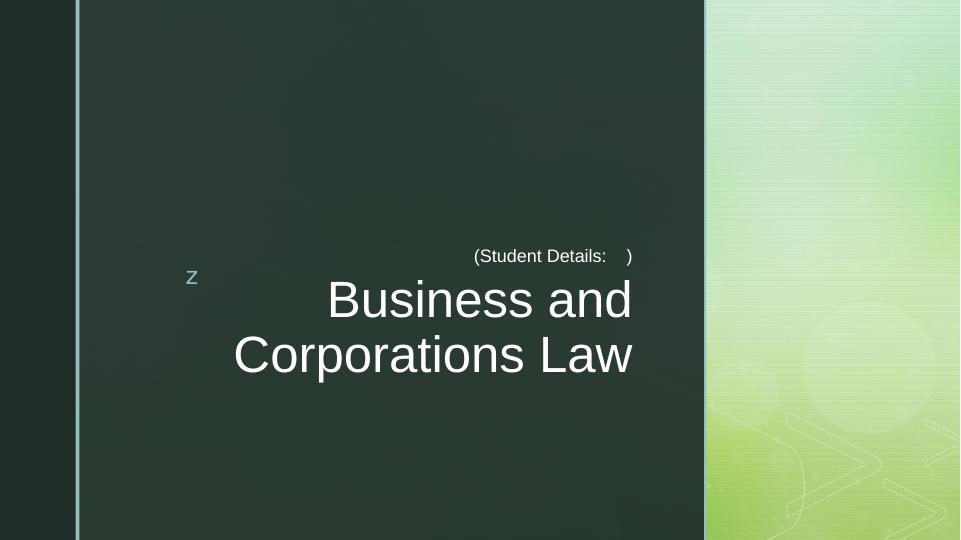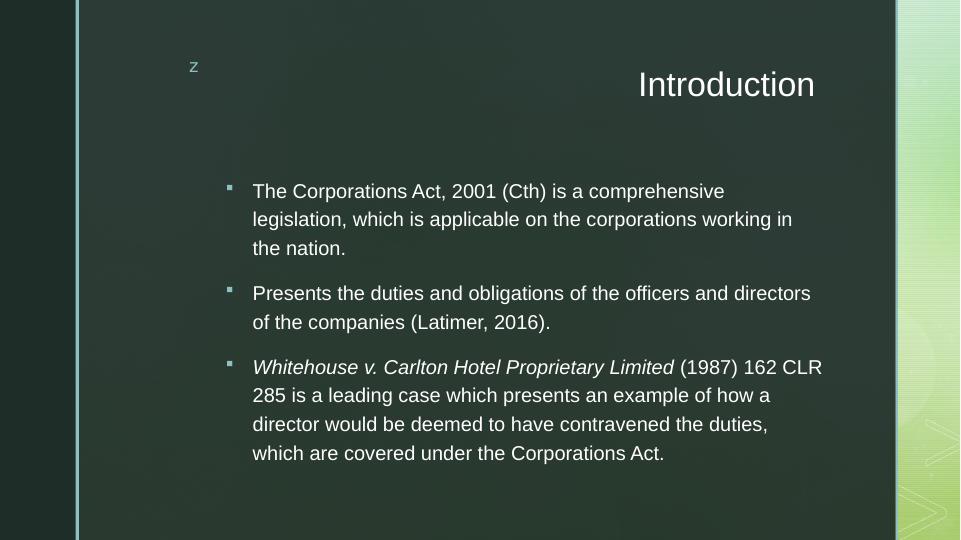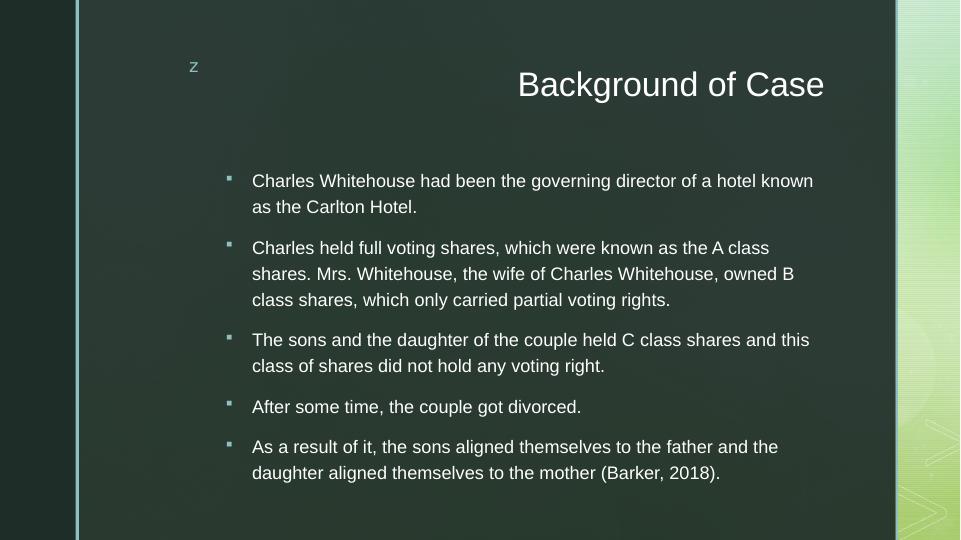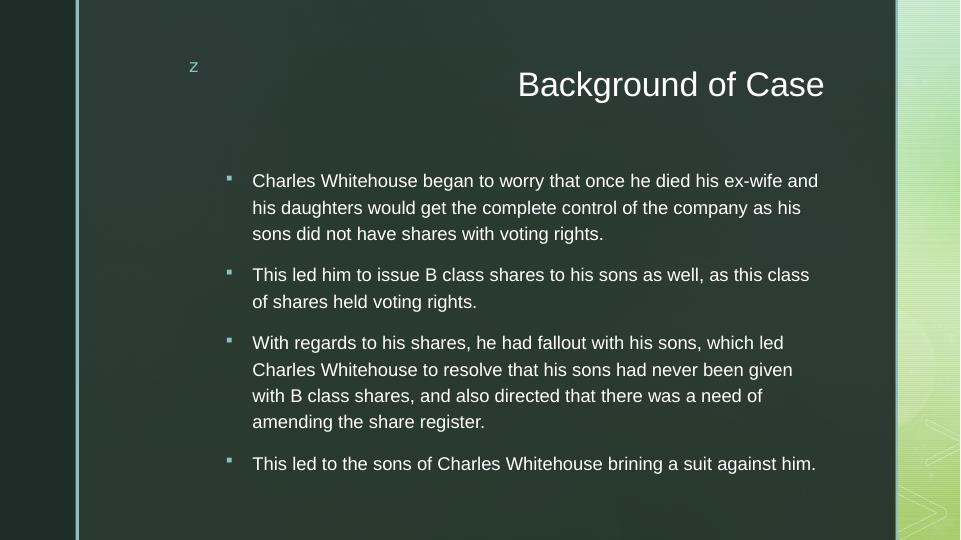Whitehouse v Carlton Hotel Proprietary Limited Case Analysis
12 Pages1513 Words471 Views
Added on 2023-06-12
About This Document
This case analysis presents the breach of duties by Charles Whitehouse, the director of Carlton Hotel, under section 181(1) of the Corporations Act, 2001 (Cth) by issuing shares to his sons for avoiding the control of the company going into the hands of his ex-wife. The case also introduced the 'but for' test and its relevance in determining the dominant cause of impermissible purpose. The case has been referred to in various other cases due to its significance.
Whitehouse v Carlton Hotel Proprietary Limited Case Analysis
Added on 2023-06-12
ShareRelated Documents
End of preview
Want to access all the pages? Upload your documents or become a member.
Whitehouse v Carlton Hotel Proprietary Limited: Breach of Director's Duties
|11
|2806
|392
Corporations Act Assignment PDF
|9
|2622
|35
Breach of Duties - Assignment
|12
|2838
|88
Corporation Law - Assignment Sample
|12
|1103
|21
Whitehouse v Carlton Hotel Pty Ltd [1987] 162 CLR 285
|10
|1073
|263
Duties breach by the directors of a university
|8
|2120
|447




